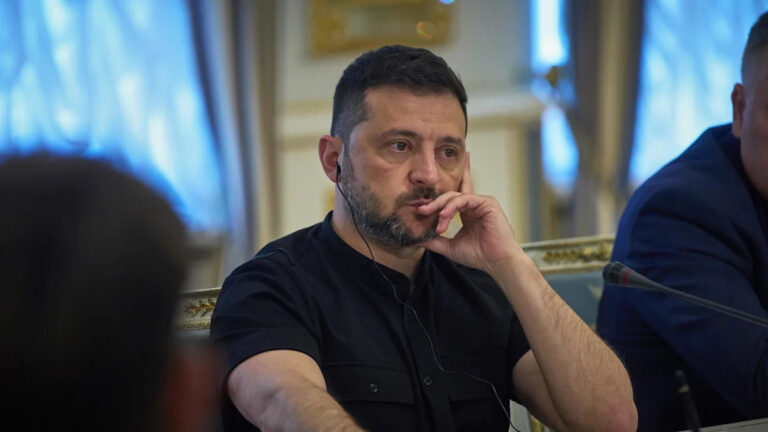US president Donald Trump’s special envoy Keith Kellogg said officials are “working very, very hard” on efforts to end the three-year war between Russia and Ukraine, as a lack of progress fuels doubts about whether a peace settlement could be on the horizon.
Mr Kellogg said in Kyiv that officials are “hoping to get to a position where, in the near term, we have, with a lack of a better term, security guarantees” that address Ukraine’s fears of another invasion by Russia in the future.
“That’s a work in progress,” he said of the potential security guarantees, after attending Ukraine’s annual National Prayer Breakfast along with politicians, business leaders and diplomats.
A week ago, Mr Trump said he had set in motion arrangements for direct peace talks between Russian president Vladimir Putin and his Ukrainian counterpart Volodymyr Zelensky. But Russian officials have signalled that such a summit will not happen any time soon.
Mr Trump said he expects to decide on next steps in two weeks if direct talks are not scheduled.
A stream of high-ranking visitors to Kyiv in recent days reflects concerns around the US-led peace drive.
Canadian prime minister Mark Carney visited Kyiv on Sunday for meetings with Mr Zelensky, pledging two billion Canadian dollars (£1.06 billion) in aid, and Nato secretary general Mark Rutte was in the Ukrainian capital on Friday.
Norway’s Prime Minister Jonas Gahr Store pledged more support (AP)
Germany’s vice chancellor and finance minister, Lars Klingbeil, arrived in Kyiv on Monday to discuss “how Germany can best support Ukraine in a possible peace process”.
Mr Putin spoke on the phone with Iranian president Masoud Pezeshkian on Monday, the Kremlin said. Russia and Iran have close relations, and Mr Putin has also deepened ties with China, India and North Korea as Western countries have sided with Ukraine in the war.
Mr Putin and Mr Pezeshkian are expected to meet next week when China hosts the Shanghai Cooperation Organisation’s annual summit, in Tianjin.
Mr Klingbeil, the German vice chancellor, told Mr Zelensky that Ukraine’s allies have to “talk about what happens if President Putin does not relent, if he wants to continue the war”.
Germany will continue to stand by Ukraine, he said, echoing sentiments by Norwegian prime minister Jonas Gahr Store earlier in the day.
Norway’s multibillion-dollar military and civilian support for Ukraine’s fight to defeat Russia’s invasion will stretch into next year, Mr Store said in Kyiv.
Mr Store, whose country borders Russia, told a news conference with Mr Zelensky that Ukraine is “defending a critical principle on the European level” by refusing to accept Russia’s seizure of territory.
Analysts say Mr Putin thinks he can outlast Western governments’ commitment to Ukraine and use his bigger army to capture more Ukrainian land while peace efforts are under discussion.
Norway on Sunday pledged about seven billion kroner (£514 million) toward air defence systems for Ukraine. Norway and Germany are jointly funding two US-made Patriot anti-missile systems, including missiles, with Norway also helping procure air defence radar, Mr Store said.
Meanwhile, Ukraine’s Air Force said Russia launched 104 strike and decoy drones overnight into Monday, targeting the country’s north and east. There were no immediate reports of damage or casualties.


